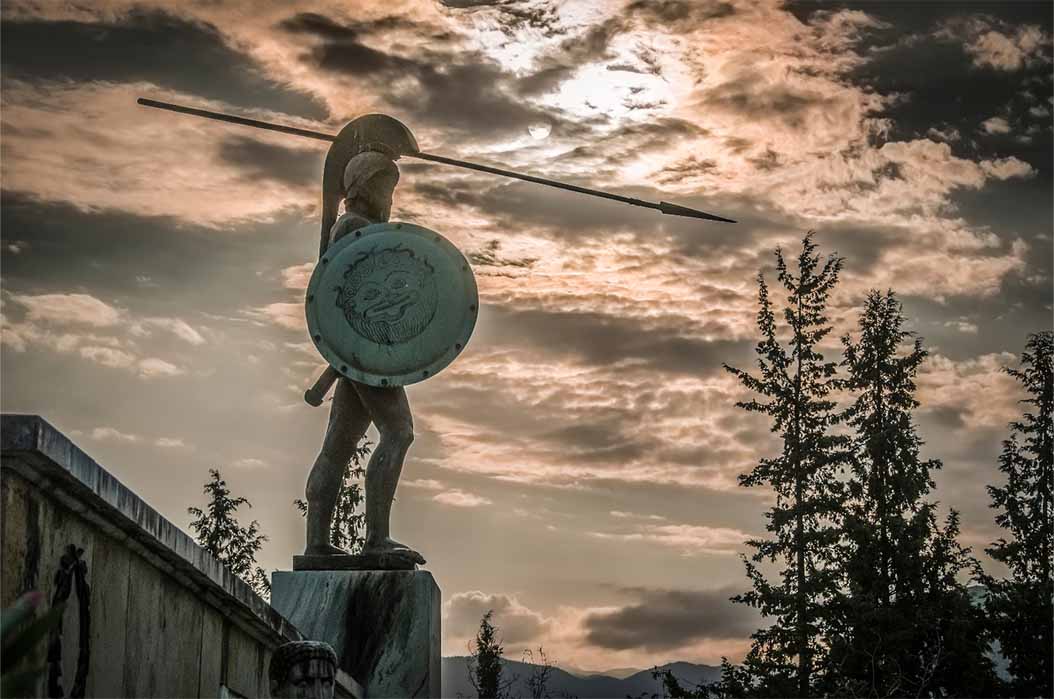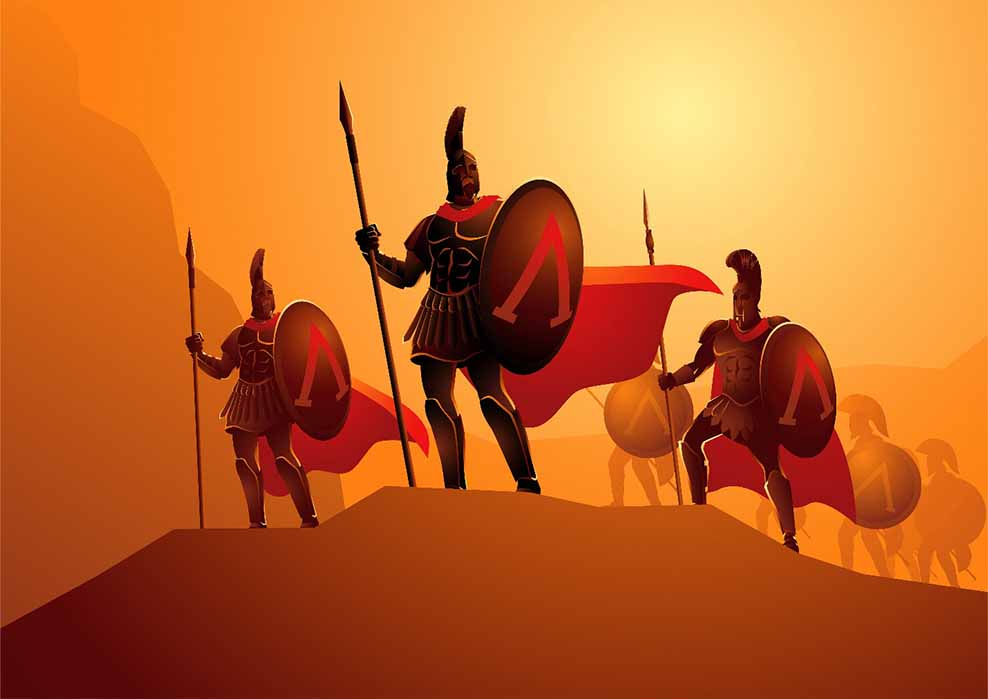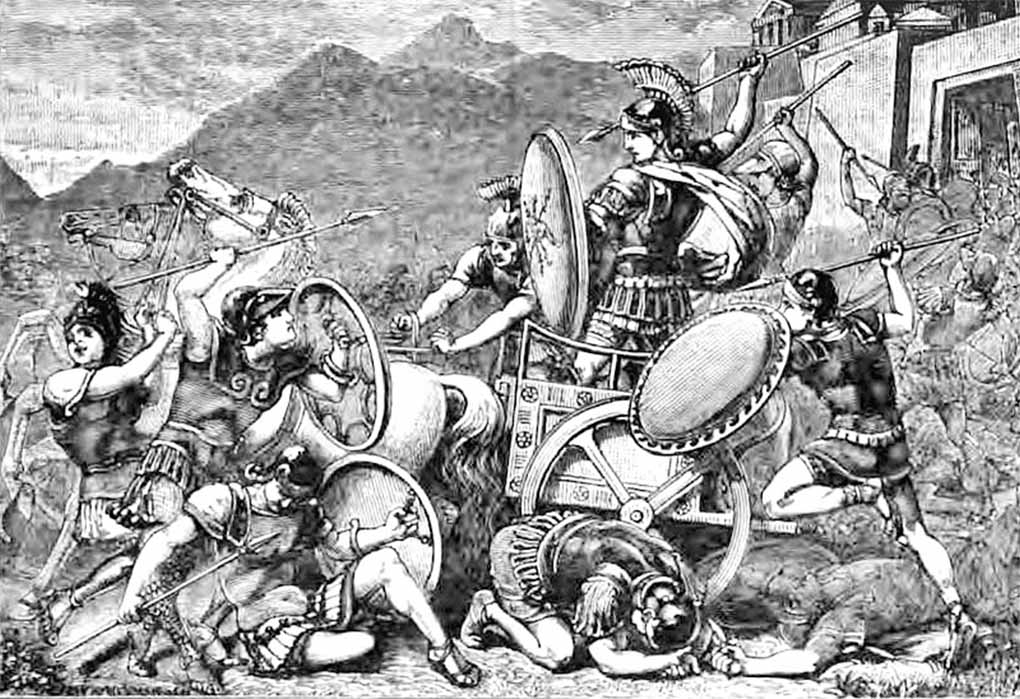
The Slaveholding City-State Of Sparta’s Liberated Women
On the face of it, Spartans might have felt right at home living under the iron fist of the Third Reich given that this city-state—more than any other in the Greek world—- sacrificed individuality on the altar of authoritarianism. In addition to the institutionalized abuse it hurled on its prized male citizens, Sparta was notorious for licensed savagery against the much-maligned Helot class who they were bent on destroying. So, it comes as something of a surprise that a society primitive in its treatment of humans was in many ways out-and-out advanced in its treatment of women. Alas, it is no secret that even in “enlightened” ancient Greece, members of the second sex were relegated to the margins of society. But although Sparta—-also known as Lacedaemon—- joined other Greek city-states in deeming women unworthy of citizenship, it differed from them in one critical way: women had the right to own property. In fact, by the early fourth century BC, Spartan women were believed to have owned as much as 40 percent of their land. For this and many other such freedoms, a grumbling Aristotle attributes the license of Spartan women to the state’s eventual downfall and quips: “But what difference does it make whether women rule, or the rulers are ruled by women? The result is the same.”

Statue of King Leonidas who led the Spartans at the Battle of Thermopylae (Aggelos Images /Adobe Stock)
Caste System in Sparta
What could have induced Sparta to break from their Greek counterparts and give women authority over their lives? Before answering this fundamental question, it is important to understand how Sparta differed from other Greek city-states and to learn the reasons for it. First and foremost, Sparta was a warrior state predicated on a ready militia that was second to none. A diarchy, Sparta was ruled by two hereditary kings who shared power equally. Within the executive branch, the kings governed along with five ephors (overseers) who were the only elected positions within the state ruling for a term of one year. With little interaction from the outside world, Sparta was intensely insular and by most accounts considered a closed society—an individual’s rank at birth determined their rank at death. Nevertheless, by some definitions they were democratic; among its male citizens everyone was equal, referring to themselves as homoioi (the equal ones). The polis was divided into three primary social classes: the Spartans (or Spartiates) who were its male citizens, the Helots who were its serfs or slaves, and the Perioeci “dwellers around” who were neither as elevated as citizens nor as suppressed as slaves and lived within the Spartan territories. When economic commerce and trade were prohibited in Sparta during the Classical era (500-336 BC), the Perioeci produced weapons and amour for Sparta’s vast military arsenal.

Spartan warriors’ shields with Lambda – the Greek L – symbolic for Lacedaemon (rudall30 /Adobe Stock)
Military Supremacy
As one of the two most prominent city-states of the Greek world, Sparta has often been compared unfavorably to Athens. Athens gave the West its genius for democracy, architecture, theatrical arts, and philosophy, while Sparta— to the exclusion of nearly everything else—focused instead on physical training and martial might. Sparta’s chief preoccupation was to subdue rebellion from within its borders and repel invasion from outside of them.
- The Helots: Slave Warriors of Ancient Sparta
- Worshipers, Rule-Breakers and Champions: Women and the Ancient Greek Olympics
- Antiquity’s Fierce Child Warriors Who Died For Their Tribes
Why were the Spartans obsessed with the notion of military supremacy? The watershed moment that impacted Sparta’s political philosophy and according to noted Hellenic scholar, Paul Cartledge, “transformed (Sparta) from a polis into a military police state” was their conquering then subduing the neighboring state of Messenia in the eighth century BC. In a two-decades-long struggle, the eventual conquest of Messenia gave Sparta a territory rich in agricultural land, but the Spartans took something more than just the Messenian land. They enslaved the entire population of Messenia becoming the only Greek city-state to base its agricultural output solely on slave labor. Although slavery was widespread throughout the Greek world, Sparta brought it to a level never before realized. In other poleis, slaves were owned by individual citizens whereas in Sparta the slaves were the property of the polis and primarily assigned to work the state-owned farms. Outnumbering the Spartans ten to one, the denigration into captivity of the Messenians who had once been a free people produced a population of permanently enraged and disgruntled captives. The Spartans called the new enslaved class Helots. Musing on the hatred the Helots felt toward the Spartans was historian Xenophon (430-354 BC) who reported that the Helots “would gladly eat the Spartans raw.” Indubitably, the Spartans were sitting on a veritable powder keg of their own creation.

Messenian King Aristomenes keeping the Spartans at bay at Eira (seventh century BC) Edmund Ollier Publication (1882) (Public Domain)




